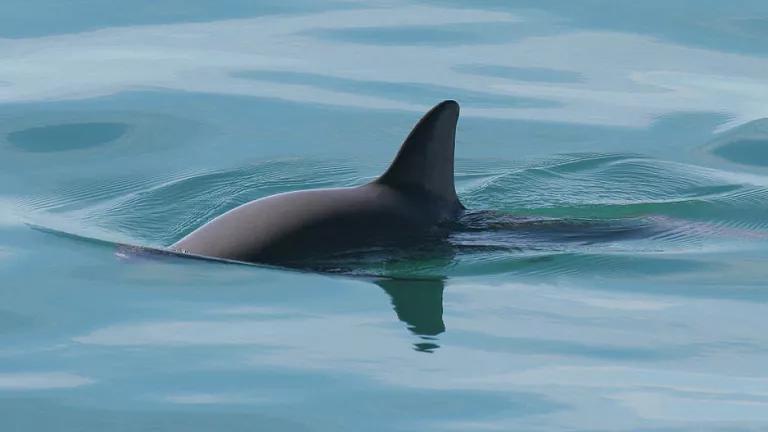Vaquita Lawsuits
Case Status
Last Update
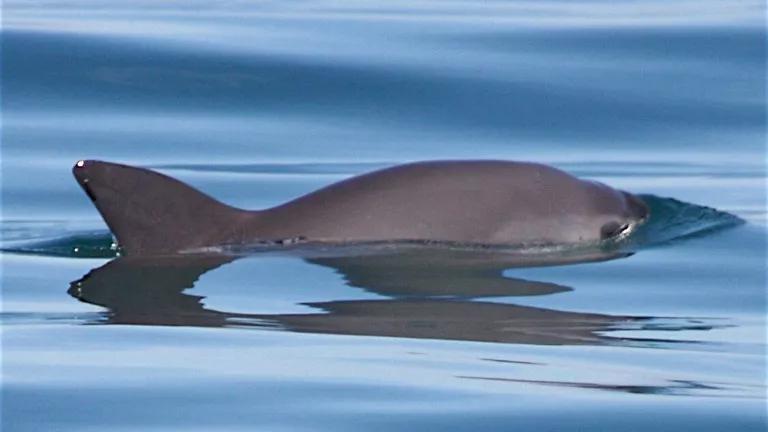
Thomas A. Jefferson
The vaquita is the world’s smallest porpoise and most endangered marine mammal, residing in only one place on the planet, the Gulf of California—which is also one of Mexico’s most profitable fishing regions. As a result of fisheries using destructive gill nets, the vaquita population has plummeted by more than 98 percent over the last 25 years as the animals are caught and killed as bycatch. In the mid-1990s, 560 of these animals existed. Today, only about 10 remain.
Unless Mexico fully and permanently bans all gill nets in vaquita habitat and properly enforces the ban, the species will continue to be at risk of extinction within the next few years. For more information, see the survey report for vaquita research 2023.
Center for Biological Diversity et al. v. Haaland et al. (active)
In December 2022, NRDC and our partners filed a third lawsuit to ensure the United States is doing everything it can to save the vaquita. The lawsuit was filed against Secretary of the Interior Deb Haaland, asking the court to compel the secretary to make a decision on whether Mexico is undermining the effectiveness of a key international agreement for the protection of endangered or threatened species by failing to halt illegal fishing and trade.
Here, the applicable international agreement is the Convention on International Trade in Endangered Species of Wild Fauna and Flora (CITES), which we have been referencing to demand action from Mexico to help protect the vaquita for numerous years. Pursuant to a settlement agreement, Secretary Haaland certified Mexico in May 2023. That July, the Biden administration announced that it would give Mexico one year to address the issues and made U.S. assistance available.
While this litigation is technically closed, NRDC and our allies are monitoring for updates and await the status report in July 2024. If Mexico does not do enough to guarantee the vaquita’s survival, we will urge President Biden to issue the strongest possible ban on wildlife products from Mexico in order to compel the country to take action. Meanwhile, illegal fishing continues in the vaquita’s habitat. A February 2024 report showed that between October 2023 and January 2024, more than 450 vessels were reported to be likely fishing with deadly gill net gear in the vaquita refuge. If the president fails to ban imports of all wildlife products from Mexico, he must explain to Congress why.
NRDC et al. v. Wilbur Ross et al. (closed)
In March 2018, NRDC and our partners filed a second lawsuit against the U.S. departments of Commerce, Homeland Security, and the Treasury, as well as the National Marine Fisheries Service (NMFS), for failing to follow the Marine Mammal Protection Act, which requires the government to ban imports from fisheries that do not meet U.S. standards for marine mammal protection.
The court ruled in our favor and ordered an embargo on some seafood imports from Mexico caught with gill nets, including shrimp, chano, sierra mackerel, and corvina products. The U.S. government tried and failed to undo the import ban three times, with the courts siding with us each time.
Despite Mexico’s partial gill net ban and the U.S. embargo, there were still around 70 boats illegally setting gill nets in the vaquita habitat in 2019. In March 2020, NMFS expanded the embargo to include all seafood caught in the northern Gulf of California using gill nets—sending a desperate lifeline to the species and settling our case.
Center for Biological Diversity et al. v. Wilbur Ross et al. (closed)
In May 2017, NRDC, the Center for Biological Diversity, and the Animal Welfare Institute petitioned the U.S. departments of Commerce, Homeland Security, and the Treasury to ban the import of seafood that was caught using deadly gill nets in vaquita habitat within the northern Gulf of California, as required by the Marine Mammal Protection Act. Because the United States was the leading importer of these seafood products, such a ban would put much-needed pressure on Mexico to fully eliminate the use of gill nets.
A month later, the Mexican government placed a permanent ban on most—but not all—gill net fishing in the vaquita’s habitat. The move was important but inadequate, considering the dire outlook for the species. Thus, in December 2017, we sued the Trump administration, seeking an immediate response to our petition for a ban. (This lawsuit was dismissed in 2019 after the government responded to our petition.)
Case Documents
Complaint Seeking Ban on Certain Mexican Seafood Imports for the Protection of Vaquita (PDF) U.S. Court of International Trade Order Granting Motion for Preliminary Injunction (PDF) U.S. Court of Appeals Order Denying Defendant's Motion to Suspend Proceedings (PDF) U.S. Court of International Trade Final Order (PDF)Related Content
United States Finds Mexico Is Undermining Wildlife Treaty, May Impose Embargo
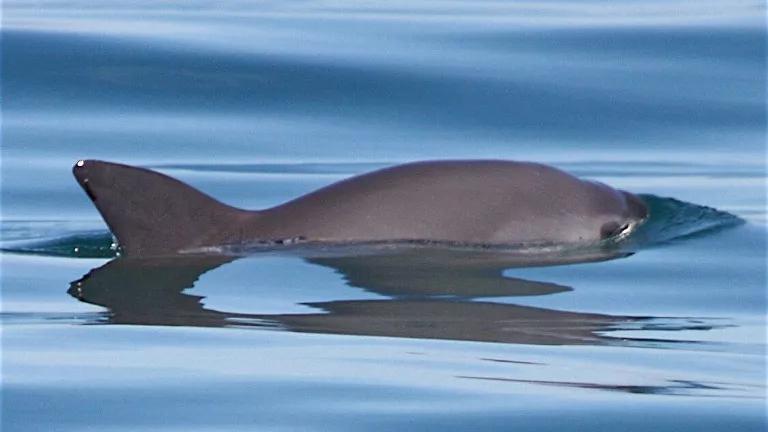
Near-Extinct Vaquita Porpoise Gets Thrown Another Lifeline
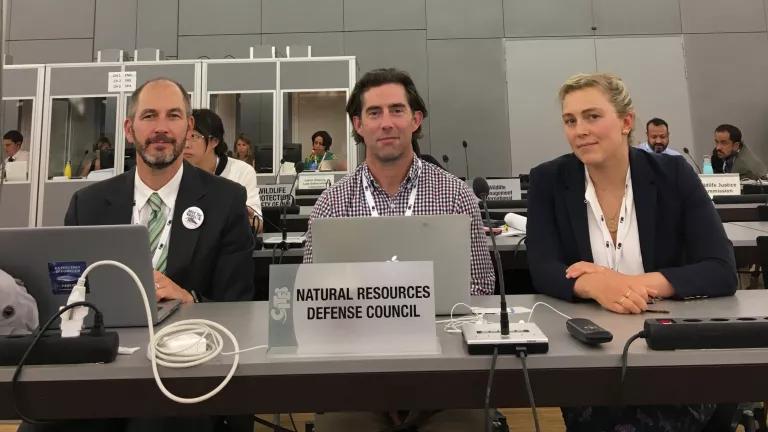
Victory for Imperiled Species at World Wildlife Conference

Earth Day Order Ends Chapter in Fight to Save Vaquita
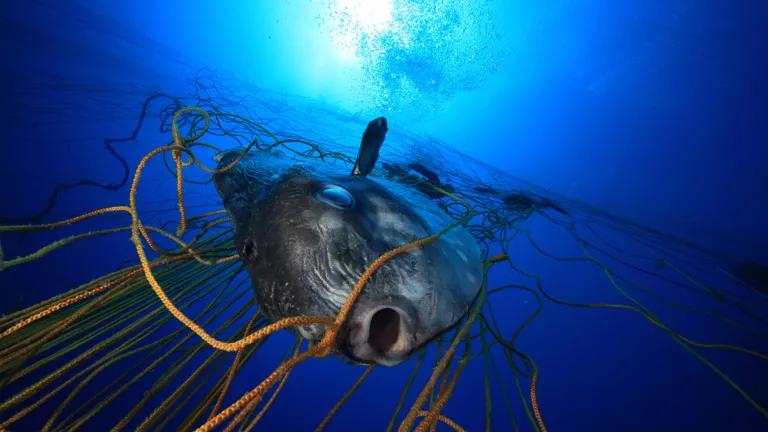
A Single Discarded Fishing Net Can Keep Killing for Centuries

UNESCO Protects Near-Extinct Vaquita's Habitat
Lawsuit Pushes U.S. to Sanction Mexico as Vaquita Porpoise Nears Extinction
